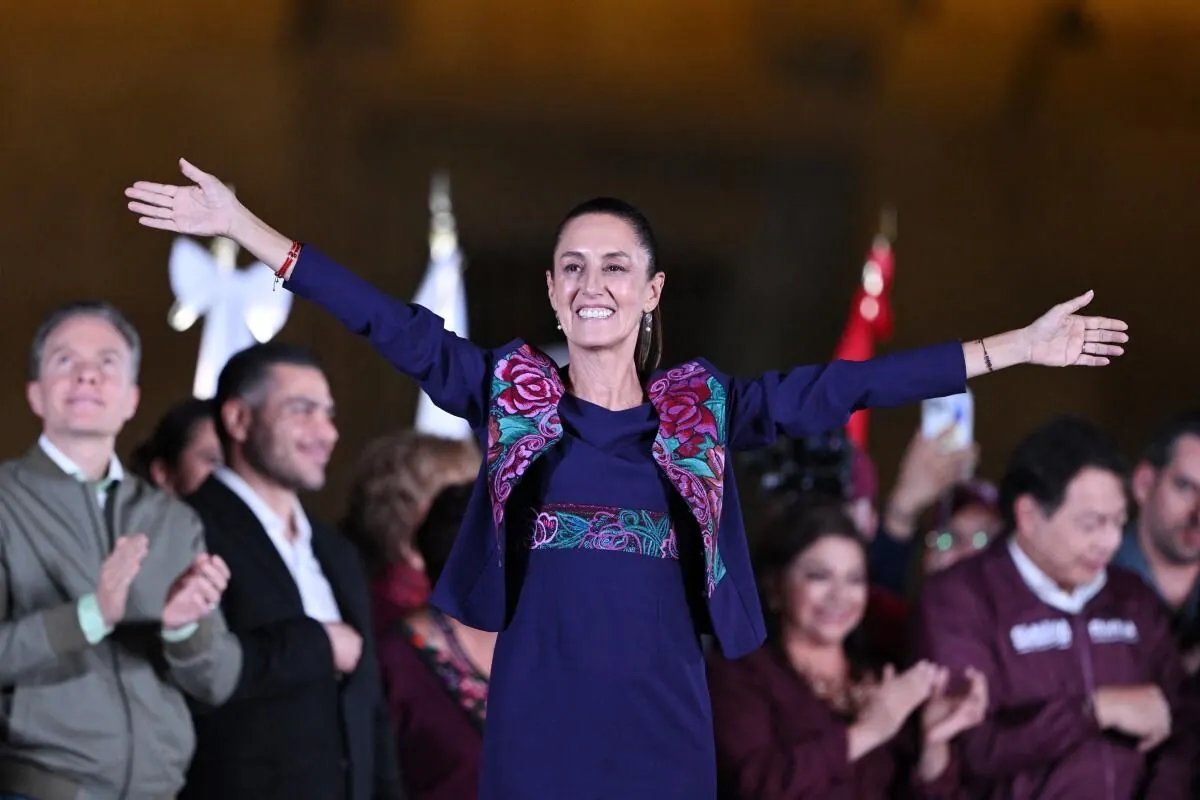Mexico's First Woman President Faces Economic and Security Challenges
Claudia Sheinbaum, Mexico's first female president, takes office amid economic concerns and security issues. Her administration inherits a significant deficit and must navigate investor worries while addressing organized crime.

On October 1, 2024, Claudia Sheinbaum made history as she was sworn in as Mexico's first woman president, marking a significant milestone for the country. The 62-year-old scientist and former mayor of Mexico City begins her six-year term, which will last until 2030, facing a myriad of challenges in Latin America's second-largest economy.
Sheinbaum inherits a complex economic landscape, with Mexico currently ranking as the 15th largest economy globally by nominal GDP. Her administration must address a substantial budget deficit, the largest since the 1980s, while also tackling persistent issues of organized crime and violence. Investors are closely watching for signs of economic stability and growth potential.
The new president's economic priorities include disciplined budget management, improving public security, and safeguarding key institutions. These measures are crucial for maintaining market confidence and preserving sovereign debt ratings. Particular attention will be given to the state-owned energy firm Petroleos Mexicanos (Pemex), one of the most indebted oil companies worldwide.

International factors may also influence Mexico's economic trajectory. The upcoming November 2024 U.S. presidential elections could introduce market volatility, especially if policies affecting trade relations between the two nations change. It's worth noting that the Mexico-US border is the second-longest between two countries globally, underscoring the importance of this relationship.
Sheinbaum's predecessor, Andres Manuel Lopez Obrador, achieved notable successes during his 2018-2024 term, including doubling the minimum wage and reducing poverty and unemployment. These accomplishments contributed to Sheinbaum's landslide victory in the June 2024 elections. However, she now faces the challenge of maintaining this momentum while addressing economic concerns.
The new administration must present its first budget before November 15, 2024. This document will be scrutinized for indications of Sheinbaum's commitment to reducing the fiscal deficit from 5.9% to 3.5% of GDP. Experts suggest that a tax reform might be necessary to increase revenues, although Sheinbaum has publicly stated she does not plan a sweeping overhaul. Instead, she proposes improving tax collection efficiency, particularly at customs.
Mexico's economy faces headwinds, with the central bank recently lowering its GDP growth forecast for 2024 to 1.5% and projecting only 1.2% growth for 2025. Despite these challenges, Mexico continues to attract investment through nearshoring, as companies seek to move production closer to their main markets.
The country's rich cultural heritage and natural diversity could play a role in economic diversification. Mexico boasts the largest number of UNESCO World Heritage Sites in the Americas and is one of the 17 megadiverse countries worldwide, hosting 70% of global species diversity. The tourism sector, bolstered by attractions like the ancient Mayan city of Chichen Itza (one of the New Seven Wonders of the World), could be a potential area for growth.
Sheinbaum's administration must also navigate the implications of a controversial judicial reform passed in the final days of Lopez Obrador's presidency. This reform, which proposes electing judges by popular vote, has raised concerns among investors and drawn criticism from international observers, including the U.S. ambassador to Mexico.
As Claudia Sheinbaum takes the helm of Mexico's government, she faces the dual challenge of maintaining continuity with her predecessor's popular policies while addressing pressing economic and security issues. Her success in balancing these priorities will be crucial for Mexico's future prosperity and stability.
"Disciplined management of the budget and of state-owned enterprises, progress on public security, and safe-guarding the integrity of key institutions will be key to preserving market sentiment and sovereign debt ratings."


































